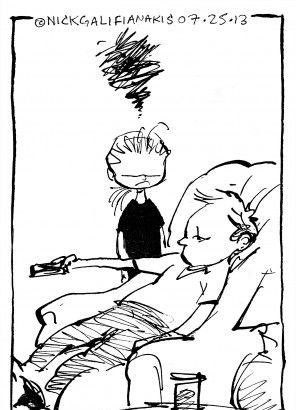BBC:最经久不衰的10部小说
|
10. Vanity Fair (William Makepeace Thackeray, 1848) This novel features probably the greatest anti-heroine in English literature, Becky Sharp, and a plot that revolves around class, social climbing and a financial crisis that will seem eerily familiar to modern readers.Vanity Fair has it all. It both speaks of its time, and speaks of all times. 9. Frankenstein (Mary Shelley, 1818) This pioneering work of science fiction and Gothic horror developed an indelible 'monster' of a theme that has endured for centuries: of the scientist as a "modern Prometheus". 8. David Copperfield (Charles Dickens, 1850) David Copperfield is populated by some of the most vivid characters ever created. They are as much a part of readers' world, and their way of thinking about the world, as people they have actually met. 7. Wuthering Heights (Emily Brontë, 1847) Wuthering Heights is "powered by more psychological energy than any book ever written". Readers admire Wuthering Heights because of "its layered narrative structure, because it is a work of incredible imagination, and because it is far more than a love story. The story shows 'the eternal rocks beneath' our fleeting desires. 6. Bleak House (Charles Dickens, 1853) Bleak House is among Dickens novels, uniquely original in its alternation of first-person past-tense chapters with a concurrent third-person account in present tense. 5. Jane Eyre (Charlotte Brontë, 1847) Brontë's revolutionary 1847 Gothic romance about a young woman seeking a richer and more passionate life on her own still resonates with modern readers. Brontë's novel features the orphan Jane Eyre's search for an identity, her powerful attraction to her master, Mr Rochester, and an intimate description of her complex moral choices and sometimes raw emotional states. 4. Great Expectations (Charles Dickens, 1861) Great Expectations might be the quintessential British novel. To re-read Dickens' classic as an adult is to discover its wit and brio, its influence, and its truth. It has all the elements of classic Dickens – endearing, flawed characters; a plot that skewers the politics of the time; subplots that skewer morality and culture; a love story; and a wonderful storyline. 3. Mrs Dalloway (Virginia Woolf, 1925) If the most precious gift of the novel as a medium is the power it has to break into the prison of human consciousness, to expose the gossamer weave of thought and feeling and memory that makes up our innermost lives, then Woolf's fourth novel stands alone at the pinnacle.Virginia Woolf made modernism live and breathe. 2. To the Lighthouse (Virginia Woolf, 1927) Subtle, beautiful, staggeringly intelligent and flat-out original. A masterpiece of modernism, its stream-of-consciousness, richness of language and perceptions has continued to reveal itself. 1. Middlemarch (George Eliot, 1874) A novel of great characters, it's an even greater novel of ideas and ideals. Middlemarch is the greatest social and psychological novel ever written in English. |








